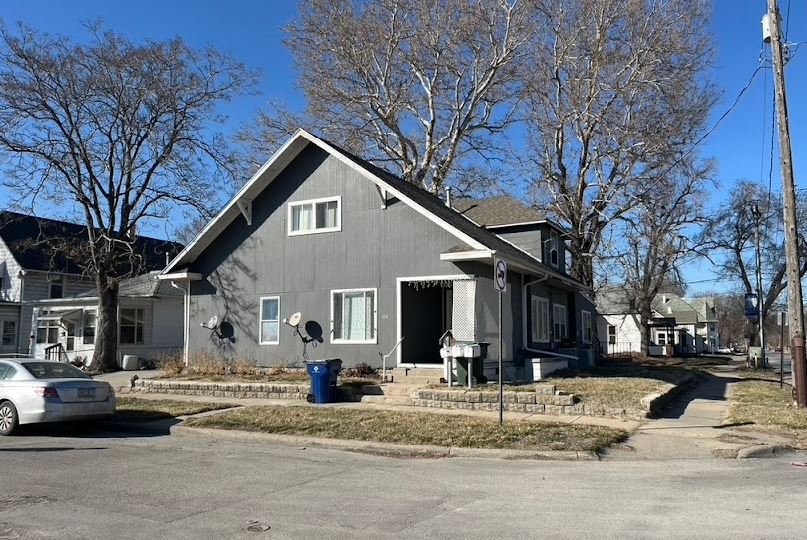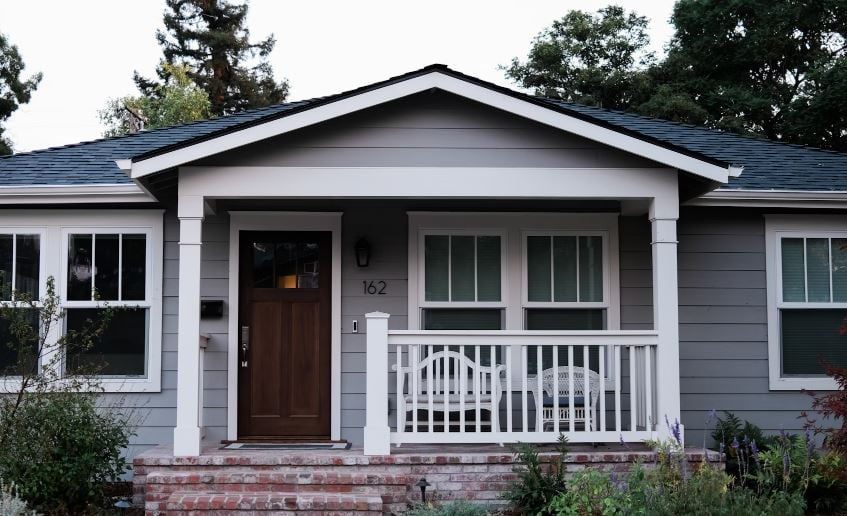Going through a tough time and struggling to keep up with mortgage payments?
You might be wondering if a short sale is the right option for you.
A short sale allows you to sell your home for less than what you owe on the mortgage, but it comes with pros and cons to weigh carefully.
In this post, I’ll go over everything you need to know about short sales.
What Is A Short Sale On A House?
A short sale happens when a homeowner sells their property for less than the mortgage amount, with the lender's approval.
This usually happens when the homeowner is facing financial difficulties and can no longer afford to keep up with mortgage payments.
This allows the homeowner to avoid foreclosure by selling the home even if it’s underwater.
Why Would A Lender Approve A Short Sale?
Lenders are not in the business of owning property and the process of going through foreclosure can become expensive and take a lot of time. The lender may not want to deal with either of those factors and determine that the loss on the amount owed would be less than having that money tied up in a non-performing asset.
Pros And Cons Of A Short Sale
Let me start with the pros and then
The Pros
The biggest advantage of a short sale is that you can avoid foreclosure.
Foreclosure can stay on your credit report for up to seven years and can make it very difficult to obtain financing for a new home or other loans.
A short sale is usually better for your credit score than foreclosure too. Your credit scores will improve in two years.
And your home will be sold privately rather than at a public foreclosure auction.
So you'll have more control over the selling process.
And sometimes the lender may forgive the remaining mortgage balance, and cover some of the closing costs of the sale.

Plus, a short sale is a private transaction, so it is not recorded publicly.
The Cons Of A Short Sale
Short sales also have a lot of downsides too.
Your credit will still be impacted . It might not be as bad as foreclosure, your credit can drop by 100 points, or more, after a short sale and might not fully bounce back for seven to 10 years.
If your lender forgives part of your loan balance, the IRS may consider that canceled debt as taxable income.
You might have to wait several years before you can get financing for another home.
Short Sale Vs. Foreclosure
A short sale is always better than a foreclosure. Let me compare both:
| Short Sale | Foreclosure | |
| Initiated by | Homeowner | Lender |
| Control over process | You have some control | No control |
| Impact on credit score | Some damage | Severe damage |
| Deficiency balance | May or may not be forgiven | You will owe remaining balance |
| Sale price | Negotiated, often below market value | Set by lender, may be very low |
| Timeline | 4 months | Up to 2.5 Years |
| Emotional stress | Not as stressful | Very stressful |
However, a short sale is not guaranteed. It requires lender approval. If you can't get approved for a short sale, foreclosure may be your only option.
How To Short Sale My House?
Here’s how to short sell your home:
#1 Contact Your Lender
As soon as you realize you may need to short sell your home, contact your lender.
Communicate openly about your financial situation.
Find out what options they may be able to provide, as well as what their specific requirements are for approving a short sale.
Your lender is legally obligated to provide you with resources for loss mitigation if you are behind on your mortgage payments by 45 days or more.
#2 Hire A Real Estate Agent
Some lenders and agencies, like the FHA, will require you to use a licensed Real Estate Agent.
Do not trust this process to just any Real Estate Agent: there are a lot of things involved with a short sale, and you need someone that specializes in this process so that they know how to work with the lender and buyers to get this sale done as quickly as possible.
#3 Complete The Lender's Paperwork
After reaching out to your lender, they'll probably ask you to fill out quite a bit of paperwork.
This often includes a borrower response package or a loss mitigation application.
These forms are meant to show your financial struggles and whether you qualify for other options, like a short sale.
Get ready to give proof of your income, expenses, and why you're having financial troubles.
#4 Selling Your Home
Once you've received the green light from your lender to proceed with the short sale, it's time to sell your distressed house.
You can either list it in the open market with a real estate agent or sell it to a cash buyer.

If you want to sell the home fast, selling to a cash buyer would be the best option. They can close a sale in as little as 7 days! But their offers would be lower.
That said, cash offers are generally considered stronger and less risky by lenders and will .
This can increase your chances of getting the short sale approved by your lender.
And since the cash buyer already has the funds available, there's less chance of the sale falling through due to financing.
#5 Review Offers With The Lender
As you get offers from potential buyers, you'll have to pass them along to your lender.
If you hire a real estate agent, they'll help vet all offers, then submit the strongest ones to the lender for their review and approval.
The lender will likely take a lot of time assessing the offers, and may come back with counter offers or requests for more buyers before they ultimately approve a deal.
Be prepared for some negotiation.
#6 Closing
Once your lender gives the green light on a buyer's offer, you can move forward with scheduling and taking part in a mortgage closing.
Your home will be transferred to the buyer, and the short sale will be finalized.
Keep in mind, though, that the short sale process often takes longer than normal sales - usually around four to six months.
You'll need to stay in touch and work closely with your lender the whole time.
Tips For Selling Your Home In A Short Sale
If you decide a short sale is your best option, here are some tips:
Make Sure A Short Sale Is The Best Option
Before deciding that a short sale is the route you need to take, carefully consider all of your options by meeting with professional advisors and the bank.
Look at other alternatives like loan modifications, repayment plans or forbearance programs offered by your lender.
Don’t immediately jump to a short sale!
Price Realistically
Pricing your distressed home well right from the start can speed up the sale.
And it will attract more good offers, which then makes it more enticing for your lender to approve the sale.
So work closely with an experienced real estate agent who can help you land on a competitive yet realistic price.
Don't Sign Any Offer Before The Lender
It can be very tempting to go ahead and sign offer letters from interested buyers before getting your lender's review and approval.
However, no matter how appealing an offer may be, hold off on signing anything formal until your mortgage lender has had the opportunity to evaluate the offer and give the go-ahead.
Signing beforehand will create complications and delays down the line.
Consider Filing For Bankruptcy
If your short sale falls through, and you find yourself facing foreclosure, you may still have one more option to consider - bankruptcy.
But this is a serious decision.
Meet with a qualified bankruptcy attorney to discuss whether filing for bankruptcy could help you in your situation and maybe even avoid the foreclosure.
So think of it as a last possible resort if the short sale does not pan out.
FAQs
How Often Do Banks Accept Short Sale Offers?
There's no guarantee a bank will approve a short sale. But, if you can demonstrate financial hardship and a realistic market value for your home, they may be more likely to agree.
Will I Owe The Bank Money After I Short Sale?
Not always. Sometimes, the bank will forgive the remaining debt after the sale. However, there are situations where they may come after you for the difference.
So it depends entirely on your loan terms.

